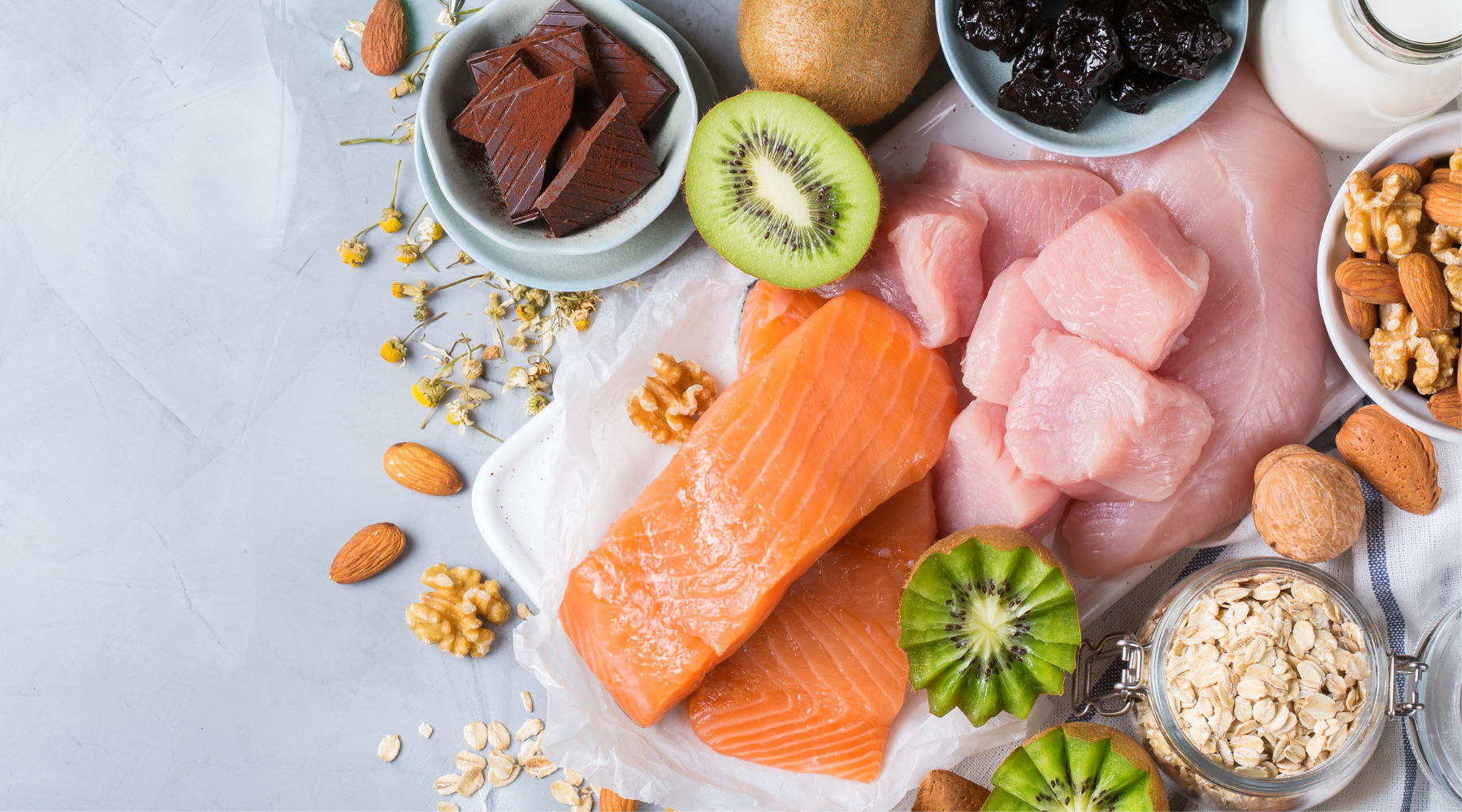L-Tryptophan: What is this amino acid, and how does it help you sleep?
L-Tryptophan is an essential amino acid. Amino acids are a group of molecules that combine to produce proteins which are our body's building blocks.
L-Tryptophan is essential for many body organs to function optimally, especially the brain. However, it is only available through diet and supplementation. Tryptophan can be found in a variety of foods as well as our supplement for natural sleep, DELTA by BrainLuxury; here is a list of foods with the highest tryptophan content:
- Eggs
- Algae
- Fish
- Beef, Lamb, Turkey, Chicken
- Dairy Products (yogurt, cheese, etc.)
- Cashews, Walnuts
- Oats, Quinoa, Brown rice
- Tomatoes
- Bananas
What effect does tryptophan have on the body and brain?
L-Tryptophan provides the body with the proper nutrients to produce the brain's natural neurotransmitter, Serotonin and its natural hormone, Melatonin. Serotonin is often referred to as the "happy hormone," as changes in serotonin levels in the brain can affect mood, appetite, and sleep.
Melatonin is stimulated as it begins to get dark, normally in sync with your circadian rhythm as the sun sets. Your brain starts releasing melatonin a few hours before bed time, signalling to your body that it’s time to relax and start to wind down.
So, in short, serotonin regulates your mood, and melatonin regulates your sleep cycle. However, like most aspects of the body, these processes are very much interconnected.
When you lack healthy sleep, your body has issues when producing serotonin. Lack of serotonin leads to a deficiency of melatonin - this vicious cycle makes it really hard to get the restorative rest you're craving and need to feel physically and mentally well. But, all is not lost! With knowledge comes power, and it is possible to get back to a health sleep-cycle.
Deficiencies in Tryptophan
Serotonin in the brain is synthesized from tryptophan; however, recent studies have shown that we also need adequate Vitamin D and Omega 3 levels to activate this pathway effectively. Surprisingly 70% of the US population have inadequate Vitamin D levels, and in the western world, Omega-3 fatty acids deficiencies are also common.(1)
A deficiency of L-tryptophan, Vitamin D, and Omega 3s can disrupt the body's production of serotonin and melatonin (1). It is not only associated with the worsening of mood but may also be linked with the dysregulation of our sleep and circadian rhythm.
Stress and Tryptophan
Increased stress and poor diet, and lack of exercise can all have a negative impact on how tryptophan is converted in the body and may thus contribute to low mood and poor sleep.
Stress and its associated cortisol production, as well as chronic low-grade inflammation, can disrupt our conversion of tryptophan. Studies have shown that elevated cortisol levels in the body can result in more dietary tryptophan being converted into a by-product called quinolinic acid. This process happens internally via our body's kynurenine pathway. The result is excess quinolinic acid in the brain, which is linked to depressive-like symptoms and low mood states. (2) + (3)
Interestingly recent research has shown that aerobic exercise increases this conversion of tryptophan to serotonin/melatonin within the brain. Aerobic exercise promotes the conversion of tryptophan into serotonin by blocking the kynurenine pathway, reducing the amount of quinolinic acid in the brain. (4)
How is Tryptophan Converted
According to recent findings (5), tryptophan promotes restful sleep by increasing serotonin levels during the day, and melatonin levels at night, especially if combined with aerobic exercise. Sufficient levels of serotonin ensure enough melatonin can build up when falling asleep at night. If there is too little tryptophan present, this may lead to disrupted or poor-quality sleep and insomnia. Increasing the amino acid may help you go back to sleep faster, help you sleep longer in total, and help you wake up less during the night.
Interested in incorporating more of this sleep-boosting amino acid into your life? Try DELTA, our supplement for natural sleep without OTC melatonin. Your brain, doing what it should do, naturally for deep sleep and brighter mornings.
------------------------------------------
We hope this has helped you on your quest for brain health. If you have any questions about our products, feel free to reach out to our team.





